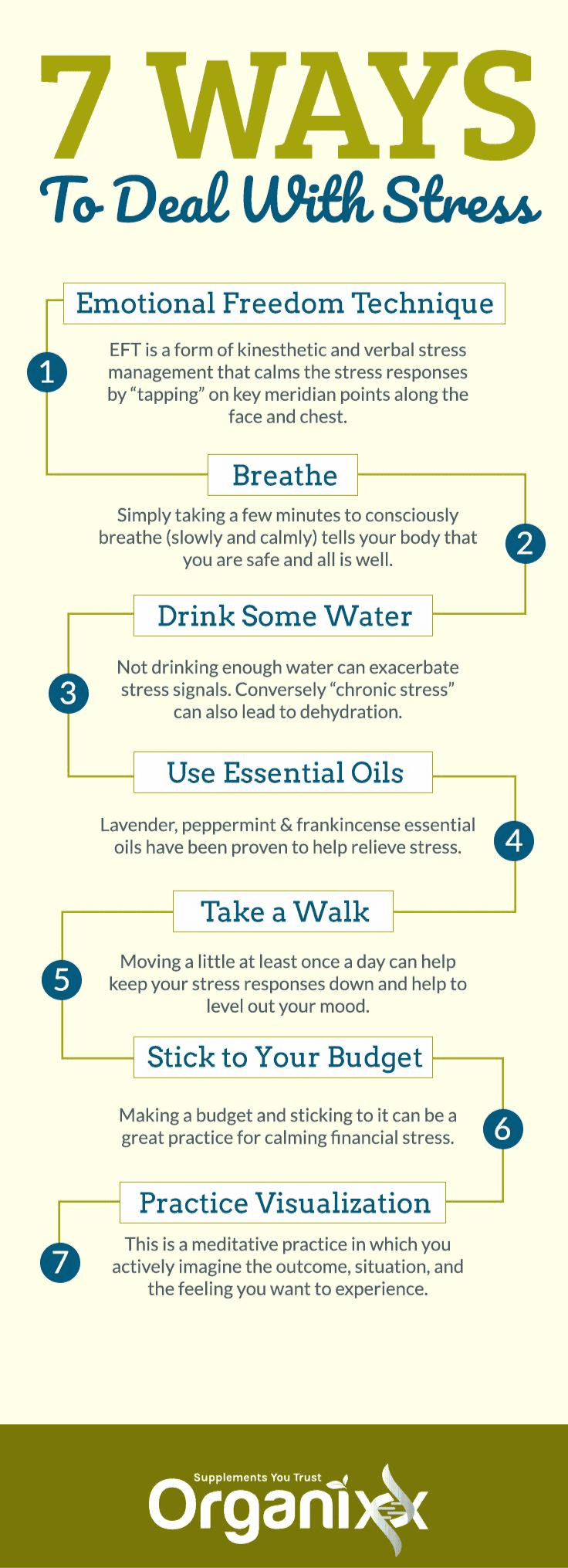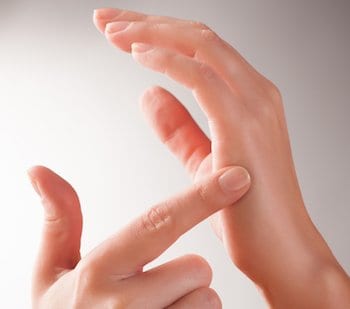We all get stressed out occasionally and our body is designed to deal with it… occasionally. When stress becomes chronic, however, that is when trouble begins. In this article, you’ll learn helpful ways to deal with stress so you can remain healthy and happy throughout the year.
Understanding the Stress Response (Fight or Flight)
When a person is in crisis, the body responds immediately and begins preparation for survival. This is called the “fight or flight” response and here is how it works:
- Stimuli reach the amygdala and eventually the hypothalamus in the brain, which controls hormone production throughout the entire body.
- The central nervous system (CNS) and in particular the sympathetic nervous system kicks in and adrenaline is released.
- At the beckoning of CNS signals, the hypothalamus produces a corticotropin-releasing hormone, which eventually stimulates the production of the stress hormone cortisol.
- Another word for adrenaline is epinephrine. Cortisol, epinephrine (i.e., adrenaline), and other stress hormones enter into the bloodstream and make their way throughout the body.
- Every tissue in the body is covered with what are called “glucocorticoid receptors.” These are proteins that allow cortisol to engage with the organs so they can prepare for “fight or flight.” When cortisol hormones fit into these receptors, the body is ready to do all it can to survive.
Finally, changes take place in the body and the brain. Sensations such as heightened senses and a pounding heart are both indications that the sympathetic nervous system has been activated. - Changes also occur that you may not be aware of. This includes blood being diverted to the extremities, changes in cognitive functioning, digestive processes grinding to a halt, and immune system functions slowing or stopping. Inflammatory markers, such as C-reactive protein, are heightened as well.
The 411 About Stress and Disease
It is safe to say that the U.S. population as a whole gets stressed big time when the holiday season rolls around.

According to a 2015 Health Line survey, 65% of Americans feel some kind of stress during the period between Thanksgiving and New Years. A 2017 Harris Poll found that 70% of people would even give up holiday gift-giving if they could!
For most, the stress caused by the holidays does not occur because of a single traumatic event but by an overbooked schedule, financial pressures, and a diet high in sugar and fat.
During the holidays, most Americans feel more severely what we all face throughout the rest of the year: chronic stress. As you learn more about the correlation of stress and disease below, you can begin to develop strategies for combatting a high-stress lifestyle all year long.
Not All Stress Is Bad Stress
It’s important to remember that not all stress is bad. The body’s stress responses are normal and could potentially save your life. It’s when the cycle of fight or flight continues for a long period of time, even at a low level, that it can lead to disease. The toll that chronic stress takes on your body is called the allostatic load.
Here are just a few changes that may occur in your body as your allostatic load increases:
- The immune system is compromised. Immune system cell production is lowered during times of stress. After all, how is the body expected to heal and repair itself when it is actively dealing with crisis?
- Glucose levels increase. The body needs fuel to get your arms and legs pumping in prep for survival. While glucose levels increase, adrenaline levels often taper off and become depleted over time. Adrenal fatigue is a condition that affects up to 80% of the American population, according to some studies.
- Fungal growth increases. Fungal growth loves glucose and the acidic environment that too much of it can create in the body. This vicious cycle also increases the risk for major disease. Cognitive function becomes impaired. Neurotransmitters and neuropeptides can be affected when stress occurs. Researchers say that these neurological stress responses are all “fine-tuned responses to diverse challenges.” However, according to a 2014 study conducted by Arizona State University, chronic stress can significantly impair spatial learning and memory function.
- The body wants to put on weight. Finally, being stressed all the time can encourage your body to put on weight. This is because of changes in metabolism and glucose that take place with chronic stress, according to an Obesity journal study.
The Relaxation Response: 7 Ways to Deal with Stress
The flip side of the “flight or fight” response is the “relaxation response,” which is run by the parasympathetic nervous system.
While chronic stress can lead to more and more disease conditions over time, the relaxation response can lead to more repairing and healing.
The relaxation response puts the limbic system to sleep and allows all of the healing mechanisms in the gut, immune system, and other areas to do their job.
This can lead to:
- An increase in the production of “healing hormones” including endorphins, oxytocin, serotonin, and dopamine, which all play key roles in healthy immune system function (plus, they make you feel really good!)
- A decrease in cortisol and adrenaline, which in turn lowers inflammatory markers in the body
- An increase in immune system cells, including natural killer (NK) cells
- An increase in cognitive ability and memory
- An increase in the function of detoxification pathways, such as the liver

The more a person remains in “relaxation mode,” the lower the risk for disease and the longer the life expectancy.
Studies have shown that symptoms of insomnia, anxiety/depression, digestive conditions, and even arthritis and cancer all decrease the more the body remains within the perimeters of the relaxation response.
If the relaxation response is such a great thing, then how can we get there and stay there as we enter the New Year?
The relaxation response can only kick in when a person feels safe, supported, and balanced. To get here, you must learn the tools that will become a part of your everyday life.
 Here are a few quick, easy tips you can use when you are in the “thick of it” as well as a few techniques to cultivate the relaxation response over time:
Here are a few quick, easy tips you can use when you are in the “thick of it” as well as a few techniques to cultivate the relaxation response over time:
#1: EFT.
EFT stands for Emotional Freedom Technique and is also known as “tapping.” Tapping has been shown to drastically reduce stress responses in a very short amount of time. It is a form of kinesthetic and verbal stress management that calms the stress responses by “tapping” on key meridian points along the face and chest.
#2: Breathe.
Many studies have shown that deep breathing can calm the nervous system within minutes. Think about the last time you were really stressed out. Was your breathing shallow or long and slow? Were you holding your breath without realizing it? Simply taking a few minutes to consciously breathe (slowly and calmly) tells your body that you are safe and all is well.
#3: Drink Some Water.
Dehydration can be part of the vicious cycle that occurs with chronic stress. While not drinking enough water can exacerbate stress signals, being in “chronic stress” mode can also lead to dehydration, say experts.
#4: Let Essential Oils Help You.
Lavender, peppermint, and frankincense are all amazingly effective essential oils that have been proven to help relieve stress. Lavender oil can help calm the nervous system. Peppermint can stimulate balanced energy, especially if rubbed on the temples or the back of the neck using a carrier oil like jojoba. Finally, frankincense essential oil can help to support healthy inflammation levels as well as help you to “center.” (You can find ways to use these essential oils and more here.)
#5: Take a Walk.
Getting your body moving even just a little at least once a day can help keep your stress responses down and help to level out your mood. A study at Uniformed Services University of Health Sciences in Bethesda, Maryland, found that regular exercise helped even out depression and fatigue for participants after just one week.
#6: Stick to Your Budget.
Making a budget and sticking to it can be a great practice for calming financial stress which, according to the Health Line study, is the leading cause of overall holiday stress. While you may have overspent during the holidays, take some time now to ensure your budget is realistic for you.
#7: Practice Visualization.
Visualization is a meditative practice in which you actively imagine the outcome, situation, and, most importantly, the feeling you want to experience. It might sound a bit woo-woo but evidence-based research around visualization says that it works when done correctly.
A 2008 trial by the University of South Florida College of Nursing found that relaxation techniques in conjunction with guided imagery (or visualization) with breast cancer patients led to higher natural killer cell activity after surgery.
Give yourself the gift of self-nurturing and healing this year by purposely engaging in activities that can help your body turn on the relaxation response instead of the stress response.
The power of the body to heal when it is in this state is clear. In fact, according to Dr. Herbert Benson, the cardiologist who first coined the term, eliciting the relaxation response may even help the body move towards balance on the genetic level.
Magnesium deficiency is linked to stress, diabetes, heart disease, osteoporosis, chronic fatigue syndrome, depression, anxiety, trouble sleeping, sore muscles, migraines, and many more debilitating health conditions.
If your body needs magnesium, you want the most beneficial kind your body can actually absorb. Organixx Magnesium 7 gives you seven (7) of the very best, most bioavailable types of elemental magnesium available.




